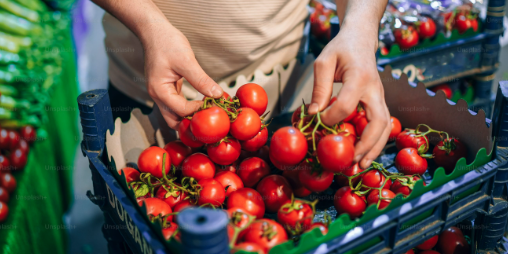The UK government has once again delayed the introduction of post-Brexit checks on fruit and vegetables imported from the European Union (EU). This marks the third time the checks have been pushed back, with the new deadline now set for July 2025. The reason behind the delay? Concerns from suppliers that these checks could cause prices to rise for everyday shoppers.
What Was Supposed to Happen?
The UK had planned to start checking certain fruit and vegetables, like celery and tomatoes, coming from the EU starting January 2025. These checks were part of the government’s Border Target Operating Model (BTOM), which is a system designed to keep an eye on plant and animal products entering the country. The idea behind these checks is to prevent plant and animal diseases from spreading. It’s also meant to protect the environment and UK farms.

But the checks have been delayed once again. The original plan was to have them in place by October 2024, but now it seems that they won’t come into effect until mid-2025. The government says this delay will give them more time to understand how the new system will impact businesses and shoppers alike.
Why Are The Checks Being Delayed?
The main reason for the delay is concern from businesses. Importers and suppliers are worried that if the checks go ahead as planned, it could cost them a lot of money. This could lead to higher prices at the supermarket for things like fruit, vegetables, and even flowers. The Fresh Produce Consortium (FPC), a group that represents 700 companies in the fresh food industry, has been pushing for this delay. They warned that the checks could add more than £200 million in costs, which would likely be passed on to shoppers in the form of higher prices.
The BTOM System: What Is It?
The BTOM system is part of the UK government’s strategy for managing goods that come into the country now that it’s no longer part of the EU. Under this system, certain “medium” and “high-risk” plant and animal products would be checked when they enter the UK at border control posts. These checks are to ensure that harmful diseases don’t sneak into the country through imported goods. It’s a way of protecting the UK’s agriculture industry.
For example, if a shipment of tomatoes or apples arrives at a UK port from the EU, it would need to be checked to make sure it’s free of harmful pests or diseases. Importers are also charged fees for these inspections, which can add to the overall cost of bringing these goods into the country.
However, for now, most fresh fruit and vegetable importers have been given a grace period. This means they won’t have to worry about these checks or the associated fees until July 2025.
What’s Changed?
One big update is that several fruit and vegetable products, which were previously considered “medium risk,” have now been downgraded to “low risk.” This includes popular items like apples and pears. The good news for shoppers is that these items will be able to enter the UK without any checks or extra fees.
The FPC, the group representing fruit and vegetable suppliers, says that around 80% of fresh produce will now be exempt from checks. However, they are still waiting for the government to confirm the final list of products that will no longer require inspections. This could mean even more fruits and veggies will be able to enter the UK without any hurdles.
What Are Suppliers Saying?
Nigel Jenney, the head of the Fresh Produce Consortium, said the delay was a positive move by the government. He praised officials for listening to the concerns of the industry and making changes that would help keep costs down. However, Jenney also mentioned that the government needs to rethink its overall strategy when it comes to importing other products, like cut flowers and plants. According to Jenney, the current system is hurting small businesses and wholesalers who rely on these products.
He added that the government should work with the industry to come up with cost-effective solutions that protect both UK businesses and consumers.
What Happens Next?
The government says the delay will allow new ministers to fully review the system and listen to businesses across the import supply chain. This could mean more changes are on the way before the checks finally come into place in July 2025.
In the meantime, the government is working on making sure the system is as smooth as possible when it does eventually roll out. A spokesperson from the Department for Environment, Food and Rural Affairs (Defra) said that the delay is a temporary measure and that the government is committed to finding the right balance between protecting UK farms and businesses and keeping prices low for consumers.

What Does This Mean for You?
For now, shoppers won’t see any big changes when it comes to the price or availability of their favorite fruits and vegetables from the EU. The delay gives businesses more time to prepare, and the hope is that this will prevent any major price hikes in the future.
But come July 2025, we’ll have to wait and see if the new system works smoothly or if there will be further delays. One thing is for sure: the UK government has a tough job ahead in balancing the needs of businesses with the goal of keeping borders safe and prices reasonable for everyone.
In the meantime, keep enjoying your apples and tomatoes without worrying too much about any changes—at least for now!








